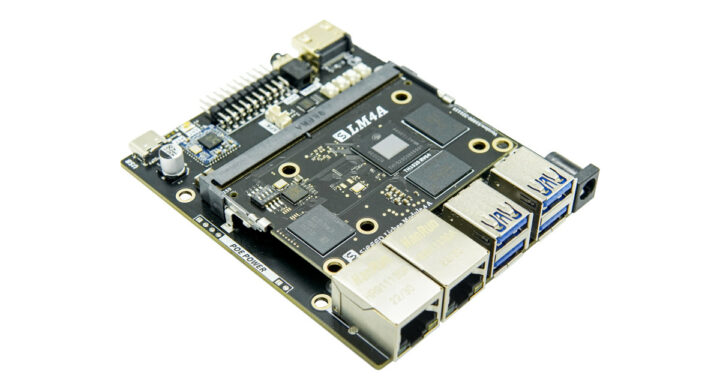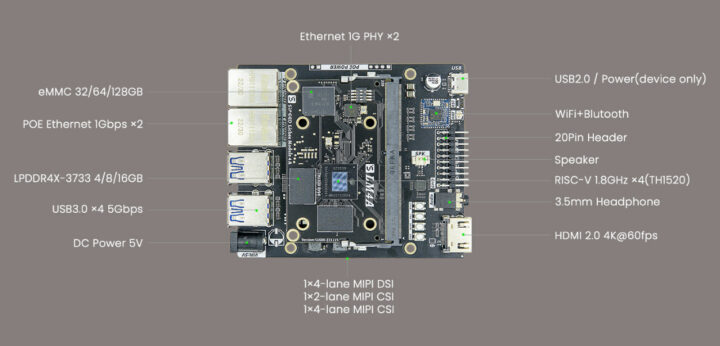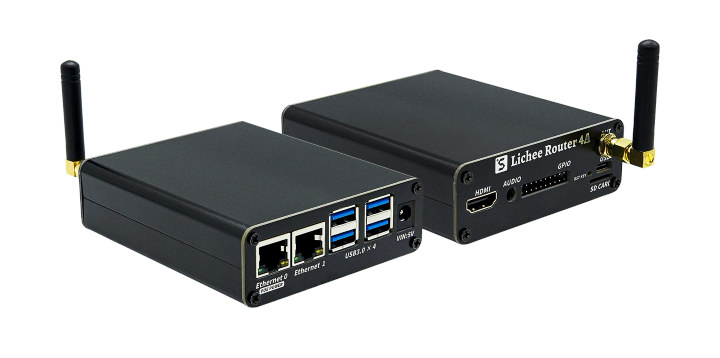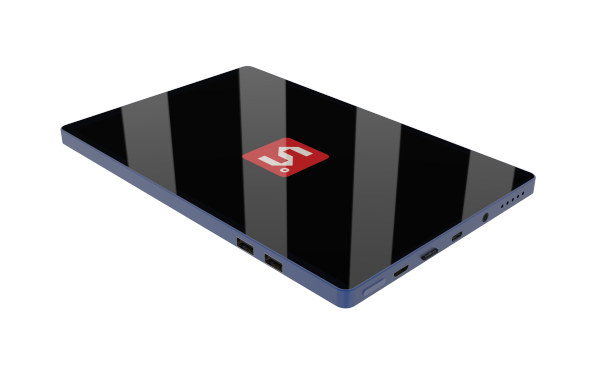Lichee Pi 4A is a single board computer (SBC) powered by Alibaba T-Head TH1520 quad-core RISC-V Xuantie C910 processor @ 2.0 GHz with an Imagination GPU and a 4 TOPS NPU for AI that can compete against the Raspberry Pi 4 in terms of performance and features.
We previously mentioned the Lichee Pi 4A (LPi4A) in our article about the Sipeed LM4A RISC-V system-on-module, but at the time we only had some benchmarks for the board and no photos and specifications about the SBC. Sipeed has now released photos, published detailed specifications, and is taking orders for the board. So let’s have a closer look.
Lichee Pi 4A specifications against the ones for Raspberry Pi 4.
| Lichee Pi 4A | Raspberry Pi 4B | |
|---|---|---|
| CPU | T-Head TH1520, 12nm, 4x RISC-V C910 @ 2.0 GHz | Broadcom BCM2711B0, 28nm, 4x Arm Cortex-A72 @ 1.5 GHz |
| Memory | 4, 8, 16 GB 64-bit LPDDR4X-3733 | 1, 2, 4, 8 GB 32-bit LPDDR4-2400 |
| Storage | MicroSD card OR 16, 32, 64, or 128 GB eMMC flash | MicroSD card |
| GPU | Imagination BXM-4-64 GPU OpenGL ES3.0/3.1/3.2 OpenCL 1.1/1.2/2.0 Vulkan 1.1/1.2 50.7GFLOPS, Fill 3168M pixels/s | Broadcom VideoCore VI OpenGL ES3.1 Vulkan 1.0/1.2 32 GFLOPS |
| NPU | 4 TOPS @ INT8 (1GHz) Supports Tensorflow, ONNX, Caffe | N/A |
| Display | 1x HDMI 2.0 up to 4Kp60 4-lane MIPI DSI up to 4Kp50 | 2x HDMI 2.0 up to 4Kp60 2-lane MIPI DSI 3.5mm AV port |
| Camera | 1x 4-lane MIPI CSI 1x 2-lane MIPI CSI | 2-lane MIPI CSI |
| Video | H.265 & H.264 @ 4Kp75 decode H.265 & H.264 @ 4Kp40 encode | H265 4Kp60fps decode H264 1080p60 decode H264 1080p30 encode |
| Audio | Headphone jack Stereo Speaker PDM MIC | Headphone jack |
| Network | 2x Gigabit Ethernet WiFi 4 or 6 + Bluetooth 5.0 | 1x Gigabit Ethernet WiFi 5 and Bluetooth 5.0 |
| USB | 4x USB 3.0 Type-A 1x USB 2.0 Type-C | 2x USB 3.0 Type-A 2x USB 2.0 Type-A |
| I/Os header | 20-pin GPIO header | 40-pin GPIO header |
| Power | 5V via 5.5mm DC jack or USB Type-C External PoE | 5V via USB type-C up to 3A 5V via GPIO header up to 3A Power over Ethernet via PoE HAT |
The TH1520 used to be advertised at up to 2.5 GHz, but it seems to have now come down to 2.0 GHz. Software support will include Debian, OpenWrt, and Android which should then be posted in the wiki along with the schematics, pinout diagram, and mechanical files. Here are again some benchmarks that were shared in the initial announcement about the LM4A module.
Whether the Lichee Pi 4A or Raspberry Pi 4A is faster will depend on a given application since the platforms are close in the imperfect Dhrystone and CoreMarks benchmarks. RISC-V performance is also likely to improve as the software ecosystem gets more mature. The Imagination BXM-4-64 GPU should be faster than the VideoCore VI based on the GFLOPS numbers provided in the specifications.
The company had already showcased a 7-module cluster board based on LM4A at the time of the first announcement, but they will also release the Lichee Router 4A based on the Lichee Pi 4A SBC, a 6-inch Lichee Phone 4A and a 10.1-inch Lichee Pad 4A all fitted with the LM4A module.
Sipeed has just started taking orders for the Lichee Pi 4A (8GB RAM + 8GB flash) for $119.00 on Aliexpress, and the 16GB RAM version is scheduled for next month. Additional information can be found on the product page.
Thanks to Jim and Mark for the tip.
Updated: This post was initially published on December 27, 2022, and updated once the LicheePi4A board was launched on Aliexpress

Jean-Luc started CNX Software in 2010 as a part-time endeavor, before quitting his job as a software engineering manager, and starting to write daily news, and reviews full time later in 2011.
Support CNX Software! Donate via cryptocurrencies, become a Patron on Patreon, or purchase goods on Amazon or Aliexpress









